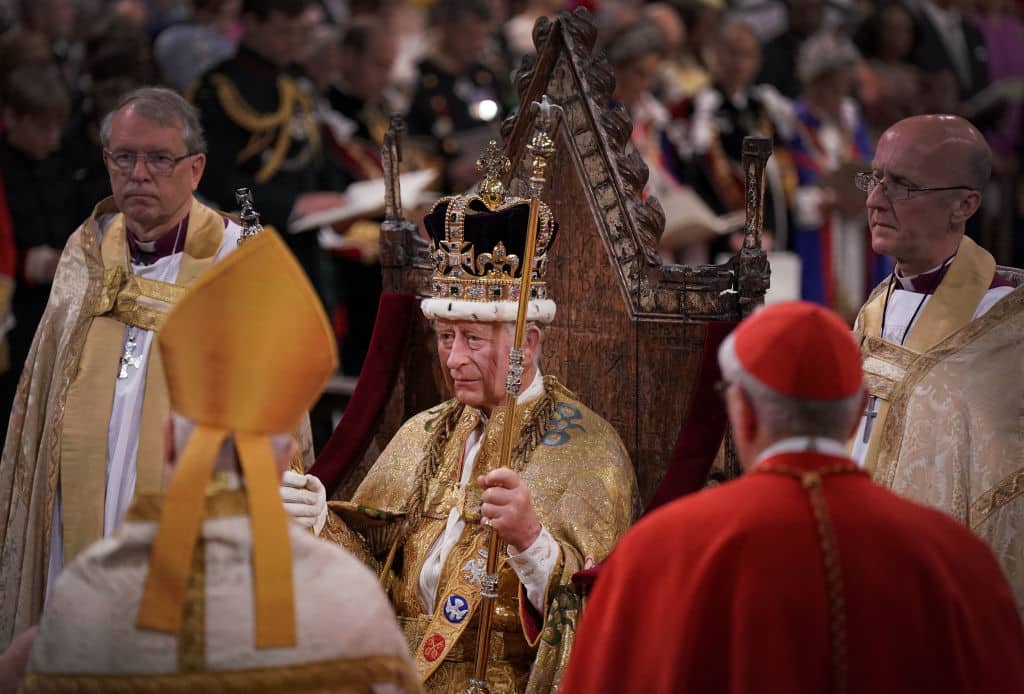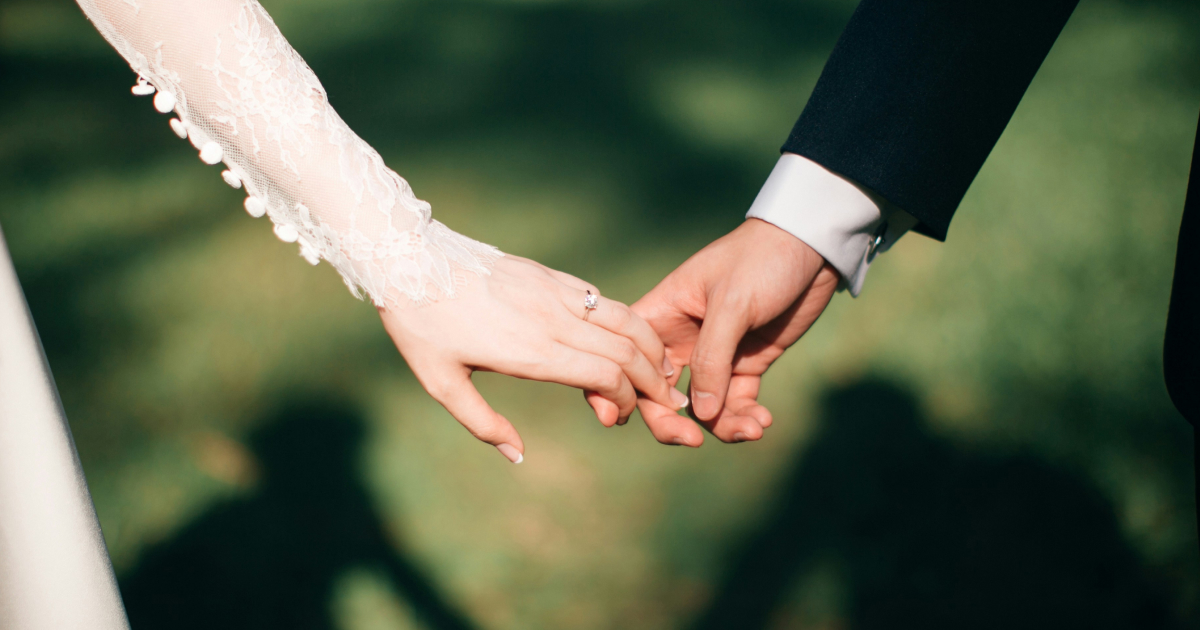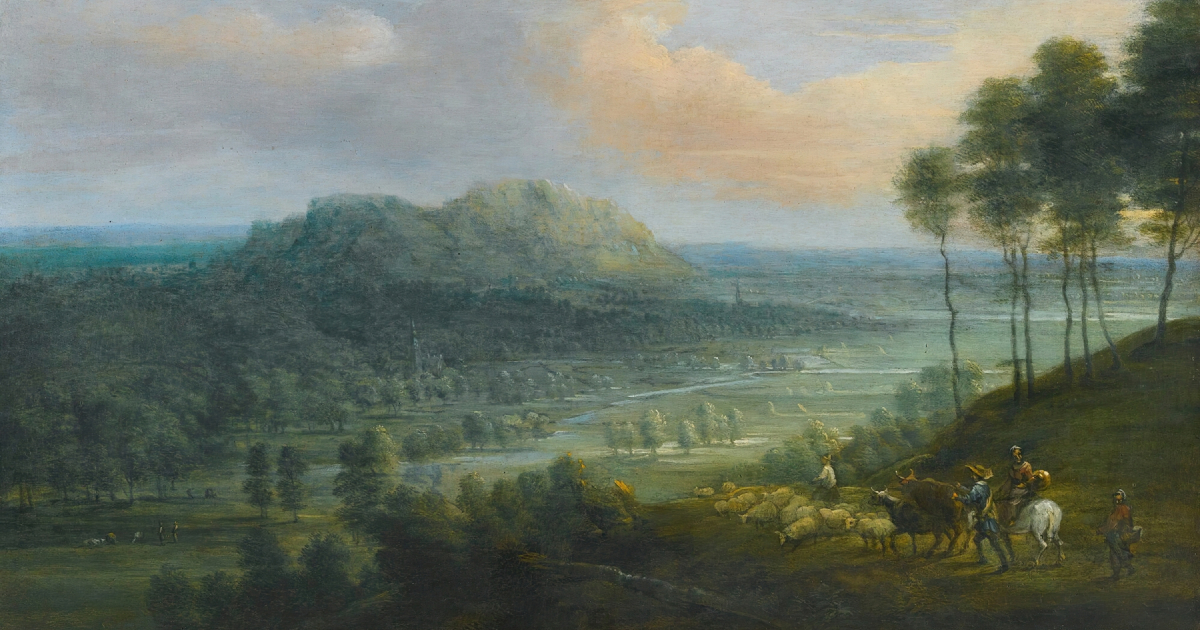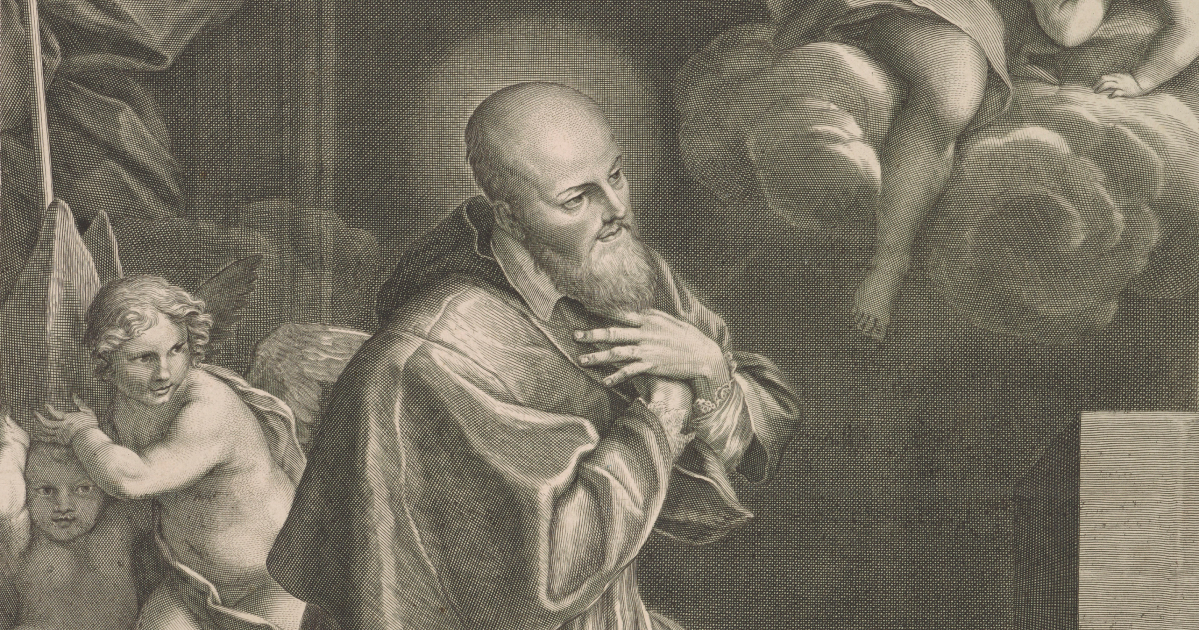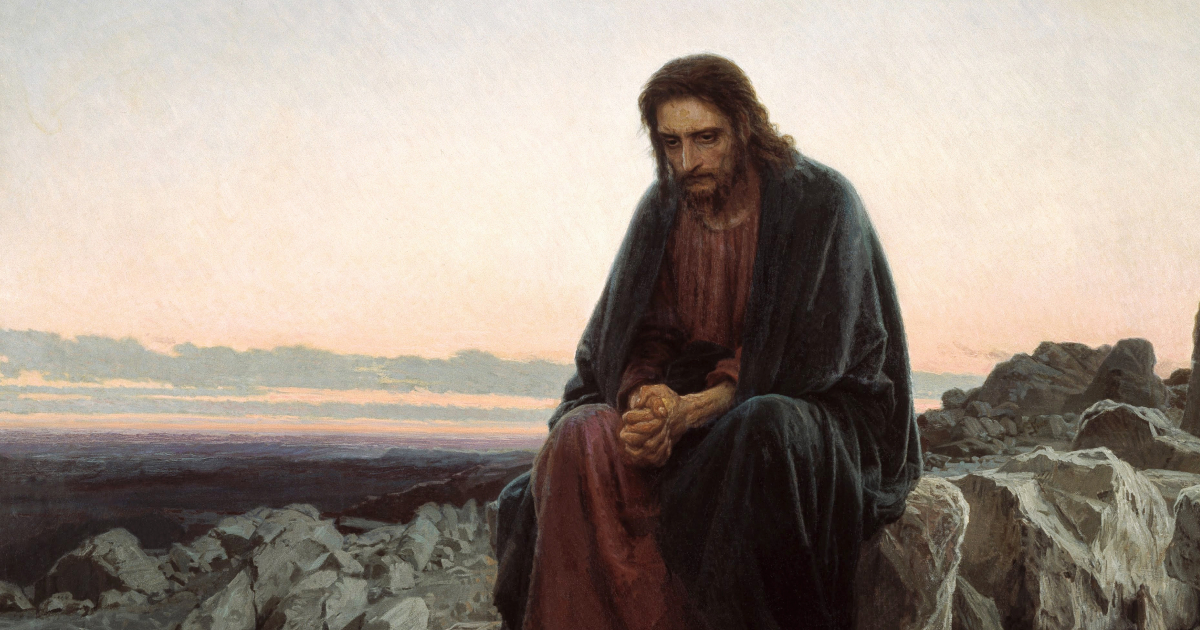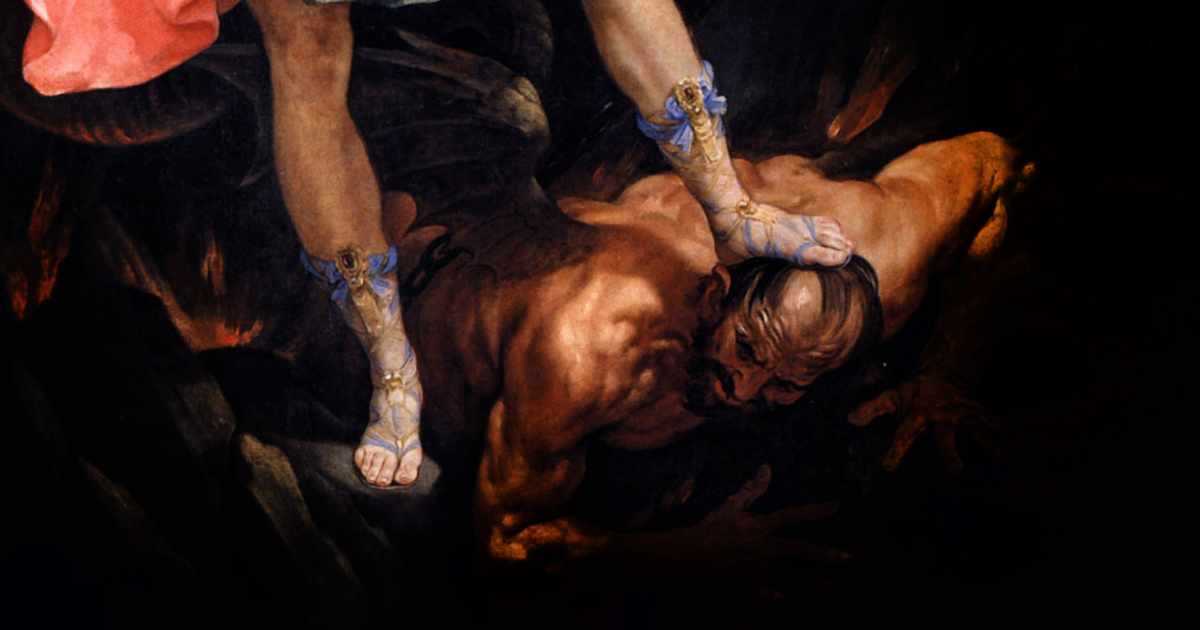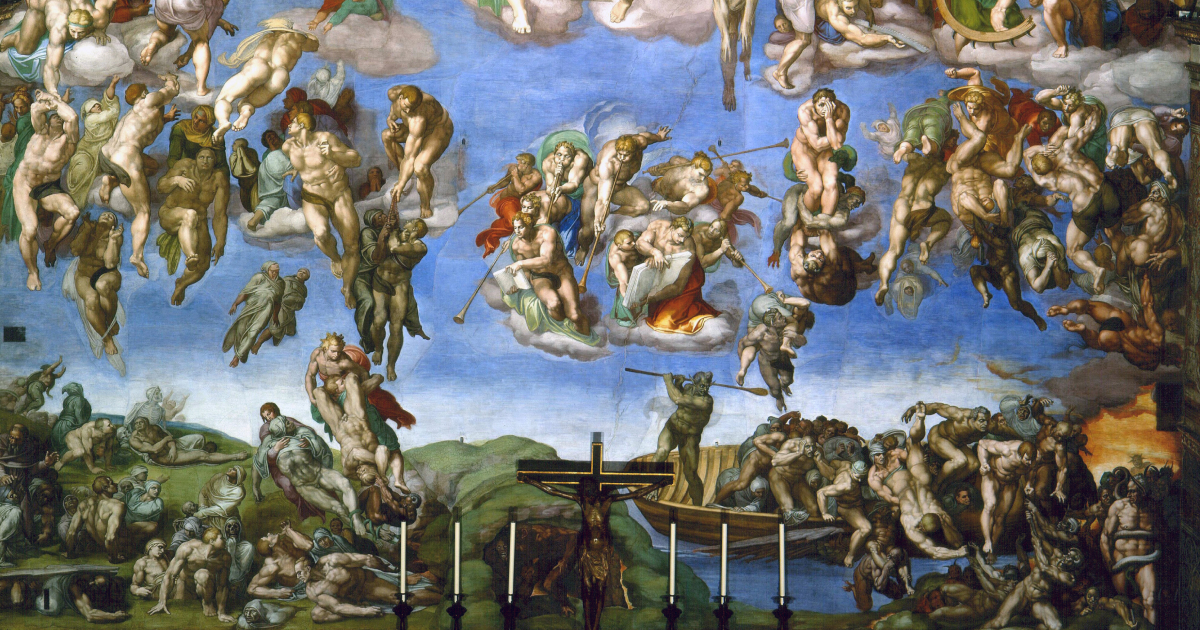The so-called “Man in the Iron Mask” was a political prisoner in 17th-century France. The French State kept his identity hidden. Voltaire once suggested that he was illegitimate elder brother of Louis the 14th. It was a mystery that was never solved.
To what extent today is Charles Windsor a prisoner of the duties and public responsibilities that come with being the king of England, thereby masking his own true soul?
The British Royal Family are often not the subject of deep sympathy by many onlookers. But although they are fabulously wealthy and privileged beyond any other family, the price they pay for it comes in a form of captivity.
Few people understand that the British royals hold their positions in society on condition that they subjugate their own selves, and instead act out a form of political and national drama as characters in a monarchical pageant.
They are not, for example, allowed to express any political opinions. They must remain always above politics, or else their unique, almost magical, representation of the whole nation is immediately destroyed. The balance between the private and the public role is a very costly one at the personal level, and difficult to maintain.
But there is one point in particular, at which it becomes especially interesting and important, and that is at the level of faith or belief in God. Nothing could be more personal than the belief of the soul in God, and its relationship with the Maker.
And yet in order to be monarch of these islands, even that relationship is prescribed by Parliament in very distinctive and exclusive formulaic terms. The role of the monarch is to act as the supreme governor of the Church of England in a reformed Protestant ecclesiology.
Queen Elizabeth I was famous for saying that she did not want to pry too closely into the windows of men’s souls. This was slightly disingenuous. The State has long had no difficulty about prying into the souls of anybody who held the Catholic Faith, welcomed Catholic priests, took part in the Catholic Mass and was disinclined to attend Anglican worship.
Such people lived in fear, not so much of having a window made into their souls as of having one made into their stomachs as they were disembowelled, hung, drawn and quartered until they were dead.
It was the job of the British monarchy to keep the Catholic Church at bay and keep the sacraments away from the Catholic faithful. And on the more Protestant side of the coin, it was also the job of the monarchy to hold stricter Calvinists at bay in order to impose the new Protestant episcopacy as part of the government of the nation.
Serious tensions arose when the monarch failed in this role. James II was effectively deposed, and invited to flee the country when he showed signs of wanting to express his personal faith and become a Roman Catholic.
Now we have the possibility of a gap between what King Charles swore at his coronation oath, and what he privately believes. And if there is such a gap, how much does it matter?
We might, for the moment, recognise two characters in this drama. King Charles III, the monarch, the formal face of the Anglican establishment; and then Charles Windsor, son of Philip Mountbatten, a Greek Orthodox European prince who married the Queen of England.
For some time, Charles has been known for having an interest in Islam, and articulating a concern to serve as more of a defender of faiths than as a defender of the established Protestant faith. It has been assumed by almost everybody that these were genuine concerns that he personally felt. But what if, instead, they were the carefully constructed elements of a religious public image that his advisers had decided should be promoted? And that he was required to go along with them?
We all assumed that these slightly progressive views that then Prince Charles articulated – his wanting to be a defender of faith rather than of the faith – were his own. But perhaps they weren’t?
As the whole venture of multiculturalism has developed during the last 30 years, it would be surprising if those who had responsibility for assisting the monarchy did not make sure that the monarchy kept pace with the trajectory of a reinvented culture.
Not to do so would risk allowing too big a gap to emerge between the values of the historic monarchy and the Christendom it was born out of and the new secular relativism that multiculturalism became the bedrock of.
Recently a letter emerged to be auctioned. It was a private letter written in 1998 by then Prince Charles to his friend Dudley Poplak, the late interior designer who worked closely with the Royal family.
Charles wrote: “Personally, the older I get, the more I am drawn to the great, timeless traditions of the Orthodox Church. They are the only ones that have not been corrupted by loathsome political correctness.”
The significance of this letter is that it was a private letter never intended for publication, and never intended to see the light of day. No advisor or spin doctor had any influence over this piece of communication. And it reveals what Charles genuinely thought.
If by 1998, Prince Charles had a genuine contempt for a shallow manipulative program of political correctness, it suggests a particular cast of mind. It is a cast of mind that would indeed be sympathetic to Orthodox Christianity, which refuses the idea of doctrinal and occasional progress.
Are there any other indications that Charles Windsor might have a private faith of a different quality to the one that King Charles is expected to express?
In fact, there are. During the funeral of Princess Diana, a moment of profound solemnity and personal pain, Prince Charles made the sign of the cross. He made it as a practising Orthodox Christian would make it, moving the hand from the right shoulder to the left.
Although he had a number of difficulties with his father, they both seem to have shared an affection and an attraction to Orthodoxy. His paternal grandmother, Princess Alice, was an Orthodox nun for most of her life.
During his cancer treatment, King Charles was reported as having taken counsel from an Orthodox hierarch, Archimandrite Ephraim, abbot of the Greek Orthodox Vatopedi monastery on Mount Athos. “Yes, he has been in contact since the diagnosis and I believe he’ll overcome it,” the 67-year-old abbot reportedly told a Greek newspaper. “Charles has a spiritual sophistication, a spiritual life.”
In a recent Spectator podcast, the royal biographer Robert Hardman was asked what he knew about King Charles’s private religious journey. He recounted how Lord Chartres, the former bishop of London, had told him that Charles had developed an interest in the writings and theology of Staretz Silouan, a renowned Russian Orthodox monk who lived on Mount Athos.
As it happened, during the late 1970s I spent some time at the Greek orthodox monastery of Saint John the Baptist (also known as Community of Saint John the Baptist) in Tolleshunt Knights near Tiptree, England. The abbot was an elderly White Russian artist called Father Sophrony. He was also a great advocate of the theology and spirituality of St Silouan.
I did not so much sit at his feet as perch at the top of a 25-foot scaffold, where Father Sophrony spent the mornings painting iconography at the top of the refectory while inducting an Anglican theological student into the demanding apophatic theology of St Silouan.
It is dense, demanding and serious stuff. If this is the King’s private reading, it is set in a sacramental and miraculous world that is a universe away from Anglican homosexual blessings and marriage, “bishopettes” and a form of radical left-wing politics that has smuggled its way into clerical minds masquerading as the kingdom of heaven on earth.
Does this matter? It certainly helps to keep the Windsor-Mountbattens securely moored in place and the monarchy, for the present moment, stable.
But there is also the issue that Prince William has been very honest about the way in which he has talked about his absence of belief in God.
This is something of a serious constitutional time bomb. Even those who don’t care very much for religion care a good deal about hypocrisy. And as good an example of hypocrisy as you might find is one in which a public servant swears an oath to belief in God, whilst having been explicit about disbelieving in God.
It may prove with time that that particular crisis will be averted, and William will discover some growing personal faith, which he can match to the public declarations that will be required of the supreme governor of this country's national Anglican church.
For now, while Charles reigns, as long as there is no crisis, it may perhaps simply indicate the gap between the outer mask of monarchy and the inner prayers and perceptions of the man who bears the weight of the office being able to be managed, while giving a new dimension to Shakespeare’s perceptive comment of “uneasy is the head that wears the crown”. (Henry 4th, Part II).
But in a time of crisis and pressure, the gap between private belief and public oath taking might become more problematic.
Parliament is supreme and is not about to allow the monarchy to revert to either Catholicism or Orthodoxy. The only way out for the pious soul, if things came to a head, would be abdication.
At which point, if the next heir to the throne still appears to be a disbeliever, a different crisis presents itself.
RELATED: King Charles attends Advent service at Farm Street for Christians in Iraq, Syria
Photo: King Charles III, sitting in the Coronation Chair, also known as King Edward's Chair, and wearing St Edward's Crown, holding the Sovereign's Sceptre with Dove and Sovereign's Sceptre with Cross, during his Coronation Ceremony inside Westminster Abbey , London, England, 6 May 2023. (Photo by VICTORIA JONES/POOL/AFP via Getty Images.)
The so-called “Man in the Iron Mask” was a political prisoner in 17th-century France. The French State kept his identity hidden. Voltaire once suggested that he was illegitimate elder brother of Louis the 14th. It was a mystery that was never solved.
To what extent today is Charles Windsor a prisoner of the duties and public responsibilities that come with being the king of England, thereby masking his own true soul?
The British Royal Family are often not the subject of deep sympathy by many onlookers. But although they are fabulously wealthy and privileged beyond any other family, the price they pay for it comes in a form of captivity.
Few people understand that the British royals hold their positions in society on condition that they subjugate their own selves, and instead act out a form of political and national drama as characters in a monarchical pageant.
They are not, for example, allowed to express any political opinions. They must remain always above politics, or else their unique, almost magical, representation of the whole nation is immediately destroyed. The balance between the private and the public role is a very costly one at the personal level, and difficult to maintain.
But there is one point in particular, at which it becomes especially interesting and important, and that is at the level of faith or belief in God. Nothing could be more personal than the belief of the soul in God, and its relationship with the Maker.
And yet in order to be monarch of these islands, even that relationship is prescribed by Parliament in very distinctive and exclusive formulaic terms. The role of the monarch is to act as the supreme governor of the Church of England in a reformed Protestant ecclesiology.
Queen Elizabeth I was famous for saying that she did not want to pry too closely into the windows of men’s souls. This was slightly disingenuous. The State has long had no difficulty about prying into the souls of anybody who held the Catholic Faith, welcomed Catholic priests, took part in the Catholic Mass and was disinclined to attend Anglican worship.
Such people lived in fear, not so much of having a window made into their souls as of having one made into their stomachs as they were disembowelled, hung, drawn and quartered until they were dead.
It was the job of the British monarchy to keep the Catholic Church at bay and keep the sacraments away from the Catholic faithful. And on the more Protestant side of the coin, it was also the job of the monarchy to hold stricter Calvinists at bay in order to impose the new Protestant episcopacy as part of the government of the nation.
Serious tensions arose when the monarch failed in this role. James II was effectively deposed, and invited to flee the country when he showed signs of wanting to express his personal faith and become a Roman Catholic.
Now we have the possibility of a gap between what King Charles swore at his coronation oath, and what he privately believes. And if there is such a gap, how much does it matter?
We might, for the moment, recognise two characters in this drama. King Charles III, the monarch, the formal face of the Anglican establishment; and then Charles Windsor, son of Philip Mountbatten, a Greek Orthodox European prince who married the Queen of England.
For some time, Charles has been known for having an interest in Islam, and articulating a concern to serve as more of a defender of faiths than as a defender of the established Protestant faith. It has been assumed by almost everybody that these were genuine concerns that he personally felt. But what if, instead, they were the carefully constructed elements of a religious public image that his advisers had decided should be promoted? And that he was required to go along with them?
We all assumed that these slightly progressive views that then Prince Charles articulated – his wanting to be a defender of faith rather than of <em>the</em> faith – were his own. But perhaps they weren’t?
As the whole venture of multiculturalism has developed during the last 30 years, it would be surprising if those who had responsibility for assisting the monarchy did not make sure that the monarchy kept pace with the trajectory of a reinvented culture.
Not to do so would risk allowing too big a gap to emerge between the values of the historic monarchy and the Christendom it was born out of and the new secular relativism that multiculturalism became the bedrock of.
Recently a letter emerged to be auctioned. It was a private letter written in 1998 by then Prince Charles to his friend Dudley Poplak, the late interior designer who worked closely with the Royal family.
Charles wrote: “Personally, the older I get, the more I am drawn to the great, timeless traditions of the Orthodox Church. They are the only ones that have not been corrupted by loathsome political correctness.”
The significance of this letter is that it was a private letter never intended for publication, and never intended to see the light of day. No advisor or spin doctor had any influence over this piece of communication. And it reveals what Charles genuinely thought.
If by 1998, Prince Charles had a genuine contempt for a shallow manipulative program of political correctness, it suggests a particular cast of mind. It is a cast of mind that would indeed be sympathetic to Orthodox Christianity, which refuses the idea of doctrinal and occasional progress.
Are there any other indications that Charles Windsor might have a private faith of a different quality to the one that King Charles is expected to express?
In fact, there are. During the funeral of Princess Diana, a moment of profound solemnity and personal pain, Prince Charles made the sign of the cross. He made it as a practising Orthodox Christian would make it, moving the hand from the right shoulder to the left.
Although he had a number of difficulties with his father, they both seem to have shared an affection and an attraction to Orthodoxy. His paternal grandmother, Princess Alice, was an Orthodox nun for most of her life.
During his cancer treatment, King Charles was reported as having taken counsel from an Orthodox hierarch, Archimandrite Ephraim, abbot of the Greek Orthodox Vatopedi monastery on Mount Athos. “Yes, he has been in contact since the diagnosis and I believe he’ll overcome it,” the 67-year-old abbot reportedly told a Greek newspaper. “Charles has a spiritual sophistication, a spiritual life.”
In a recent <em>Spectator</em> podcast, the royal biographer Robert Hardman was asked what he knew about King Charles’s private religious journey. He recounted how Lord Chartres, the former bishop of London, had told him that Charles had developed an interest in the writings and theology of Staretz Silouan, a renowned Russian Orthodox monk who lived on Mount Athos.
As it happened, during the late 1970s I spent some time at the Greek orthodox monastery of Saint John the Baptist (also known as Community of Saint John the Baptist) in Tolleshunt Knights near Tiptree, England. The abbot was an elderly White Russian artist called Father Sophrony. He was also a great advocate of the theology and spirituality of St Silouan.
I did not so much sit at his feet as perch at the top of a 25-foot scaffold, where Father Sophrony spent the mornings painting iconography at the top of the refectory while inducting an Anglican theological student into the demanding apophatic theology of St Silouan.
It is dense, demanding and serious stuff. If this is the King’s private reading, it is set in a sacramental and miraculous world that is a universe away from Anglican homosexual blessings and marriage, “bishopettes” and a form of radical left-wing politics that has smuggled its way into clerical minds masquerading as the kingdom of heaven on earth.
Does this matter? It certainly helps to keep the Windsor-Mountbattens securely moored in place and the monarchy, for the present moment, stable.
But there is also the issue that Prince William has been very honest about the way in which he has talked about his absence of belief in God.
This is something of a serious constitutional time bomb. Even those who don’t care very much for religion care a good deal about hypocrisy. And as good an example of hypocrisy as you might find is one in which a public servant swears an oath to belief in God, whilst having been explicit about disbelieving in God.
It may prove with time that that particular crisis will be averted, and William will discover some growing personal faith, which he can match to the public declarations that will be required of the supreme governor of this country's national Anglican church.
For now, while Charles reigns, as long as there is no crisis, it may perhaps simply indicate the gap between the outer mask of monarchy and the inner prayers and perceptions of the man who bears the weight of the office being able to be managed, while giving a new dimension to Shakespeare’s perceptive comment of “uneasy is the head that wears the crown”. (Henry 4th, Part II).
But in a time of crisis and pressure, the gap between private belief and public oath taking might become more problematic.
Parliament is supreme and is not about to allow the monarchy to revert to either Catholicism or Orthodoxy. The only way out for the pious soul, if things came to a head, would be abdication.
At which point, if the next heir to the throne still appears to be a disbeliever, a different crisis presents itself.
<a href="https://catholicherald.co.uk/king-charles-attends-advent-service-at-farm-street-for-persecuted-christians-in-iraq-and-syria/?swcfpc=1"><mark style="background-color:rgba(0, 0, 0, 0)" class="has-inline-color has-vivid-cyan-blue-color"><strong><em>RELATED: King Charles attends Advent service at Farm Street for Christians in Iraq, Syria</em></strong></mark></a>
<em>Photo: King Charles III, sitting in the Coronation Chair, also known as King Edward's Chair, and wearing St Edward's Crown, holding the Sovereign's Sceptre with Dove and Sovereign's Sceptre with Cross, during his Coronation Ceremony inside Westminster Abbey , London, England, 6 May 2023. (Photo by VICTORIA JONES/POOL/AFP via Getty Images.)</em>





